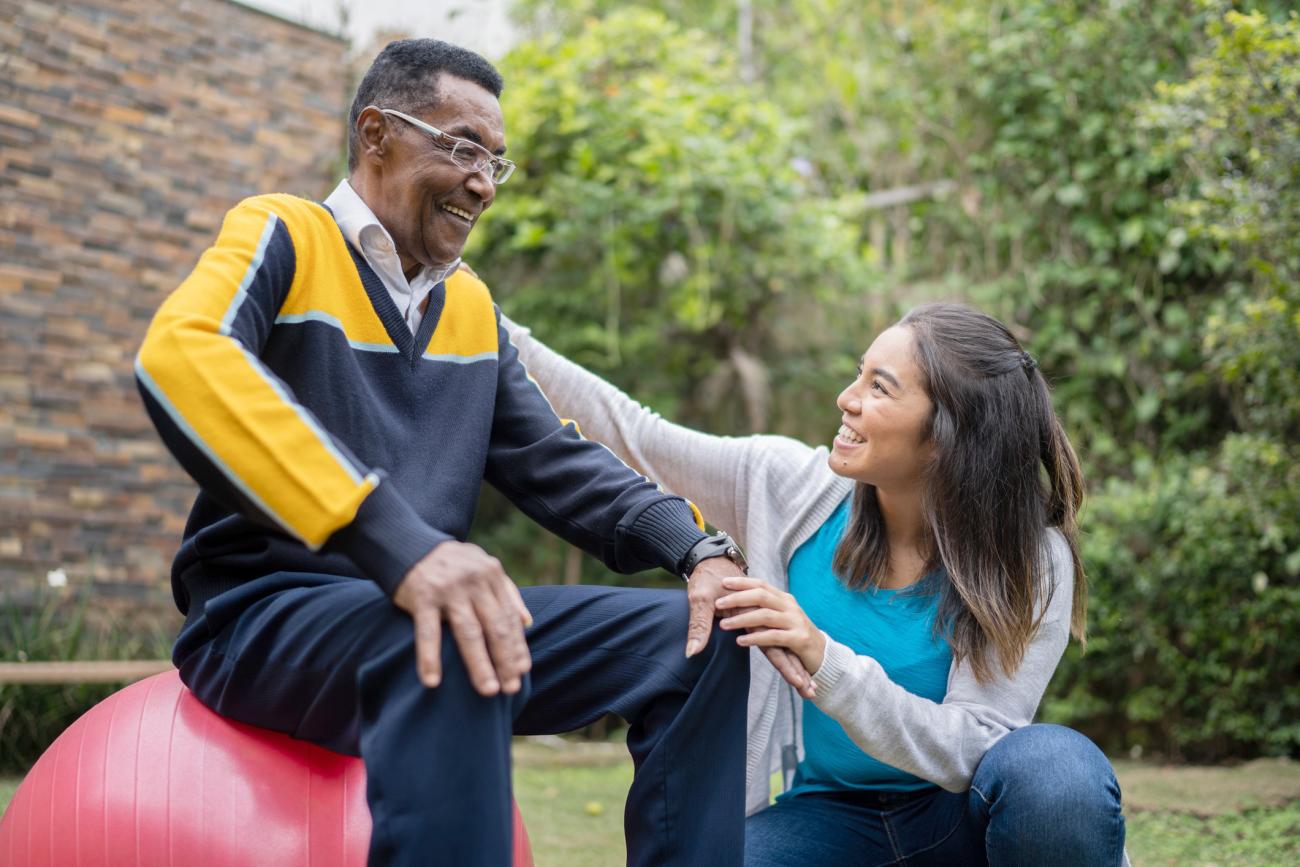
Our research expert explains how to strengthen the brain-body connection to build physical and cognitive fitness.
A leading cause of death in Canada, stroke happens when a blood vessel blockage or rupture deprives the brain of oxygen. The cell death and brain damage that can ensue may also impact physical fitness and cognition. To counteract the consequences of stroke, Vancouver Coastal Health Research Institute (VCHRI) researcher Dr. Janice Eng recommends post-stroke fitness and shares tips on how to achieve a healthier mind and body.
Q: Why can stroke affect coordination, strength and balance?
A: Stroke impacts the parts of the brain that are important for muscle coordination and balance. As a result, people who have had a stroke often experience muscle weakening. This can make it difficult to get up from a chair, walk and go about everyday life.
Because each side of the brain controls the opposite side of the body, a stroke that occurs in the right side of the brain can affect the left side of the face, the left arm and the left leg. This can cause the face to droop; result in difficulty opening and closing the hand; and make it challenging to lift the foot off the ground, which is called a drop foot. Stroke can also impact a person’s sight in the early post-stroke stages, as well as their spatial awareness. A common scenario people experience following a stroke is misjudging a doorway and catching a leg or arm when going through. The lingering effects of stroke can, therefore, also increase the risk of a fall, which is a leading cause of disability and mortality among older adults.
Q: Why is exercise recommended for people who have had a stroke?
A: Stroke can often cause damage to the front area of the brain where thinking and memory abilities are housed. Recovery may require hundreds, if not thousands, of specific movements to restore these damaged pathways in the brain. Luckily, studies have shown that exercise can bring about improvements in cognition. For example, intensive reach and grasp exercises of the stroke-affected arm can strengthen pathways in the brain and improve that hand’s function. Similarly, walking a couple of thousand steps per day can improve walking ability and fitness after stroke.
Q: How long will it take to return to normal after a stroke?
A: There are many factors that influence recovery time, but a major one is the severity of the stroke. Brain cell death caused by stroke can become progressively worse the longer it takes to receive treatment, which is why it is so important to go to the hospital as soon as the signs and symptoms of a stroke are suspected.
Someone with a mild stroke might be treated in hospital for a couple of days, but it could take a few weeks to several months before they start to feel normal again. In-hospital rehabilitation is typically provided for individuals with impairments needing treatment from at least two different disciplines, such as speech therapy, occupational therapy or physical therapy. It may take about three to four weeks to see improvements; however, many stroke patients continue to see improvements in their recovery for a year or longer.
Q: Are there other lifestyle and dietary changes people should make to help with stroke recovery?
A: Leading a healthy lifestyle is not only a good way to recover from stroke, it can also prevent one in the first place. Taking steps to lower high blood pressure is important because we know that one in three people who have had a stroke will go on to have a second stroke, and that a leading risk factor for stroke is high blood pressure. The Dietary Approaches to Stopping Hypertension (DASH) diet involves eating such things as lean meats, nuts, lots of vegetables and foods low in sodium and saturated fat to help lower high blood pressure. Regular exercise, achieving a healthy weight, stopping smoking and good management of diabetes can also help in this regard.
Q: What are some programs or resources for people recovering from a stroke?
A: After Stroke BC lists a variety of resources on their website, including where to find a local stroke recovery club in your area or online. They run a virtual version of the Graded Repetitive Arm Supplementary Program (GRASP) to improve arm and hand function. They also offer speech support groups and peer support groups for young stroke survivors.
More resources are becoming available through community centres, including the Fitness and Mobility Exercise (FAME) program to help reduce falls and improve the strength, balance, cardiovascular fitness and bone density of people who have experienced a neurological injury, such as from a stroke.
A low-cost step counter can be another helpful way to stay accountable to moving more throughout the day. Even starting with a goal of 2,000 steps per day and working up from there can make a big difference in someone’s health.



